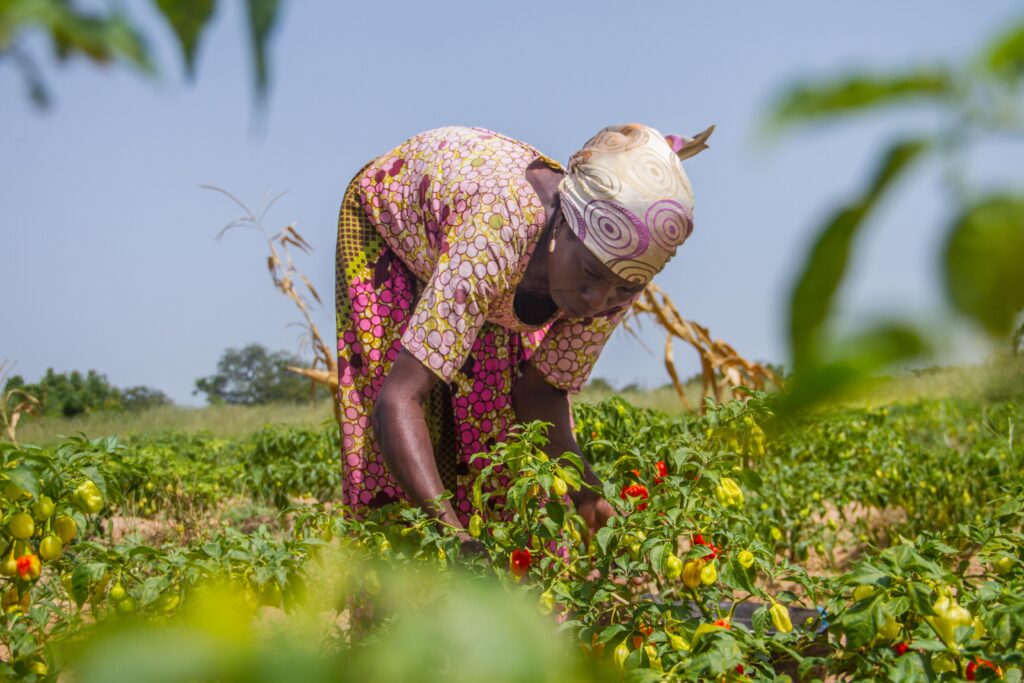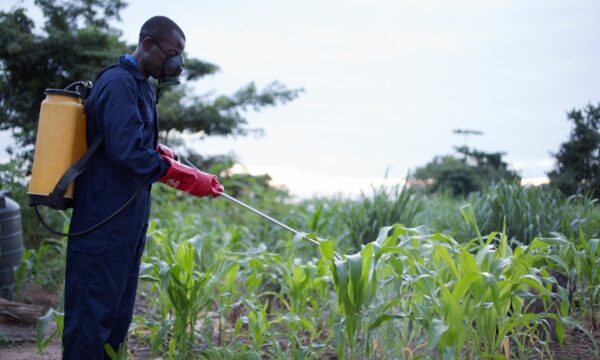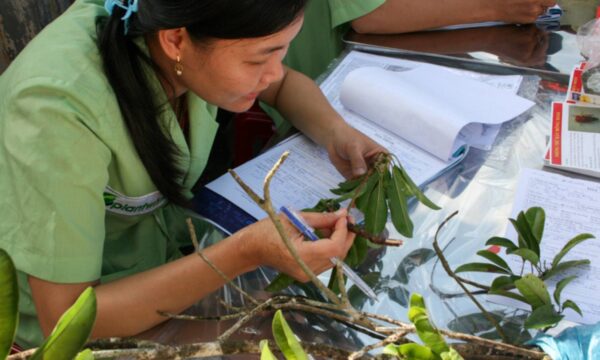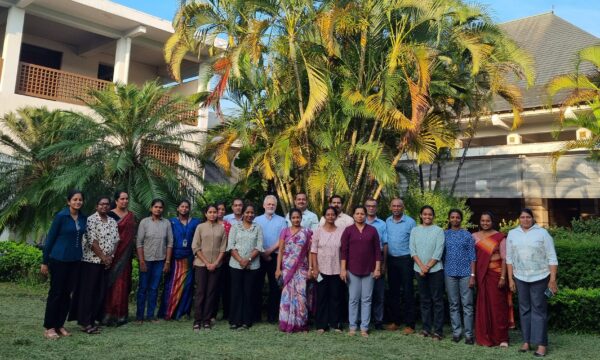
Women farmers in Ghana face many challenges in accessing gender-inclusive agricultural extension services – which are usually designed for and target male farmers. This is despite the major role that women farmers have in Ghanaian agriculture. According to the FAO, agriculture contributes to 54% of Ghana’s GDP and women constitute 58% of the agricultural labour force.
CABI’s PlantwisePlus programme works in Ghana to raise awareness around gender-related inequity and related issues within the country’s agriculture sector, with a particular focus on access to extension services.
The study brief shares the key findings to an assessment of activities that were designed to target and drive action to improve gender-inclusive agricultural extension services. These activities were based on the recommendations of a Gender and Rural Advisory Services Assessment (GRAST) which was conducted by CABI in August 2021. This tool identifies challenges at the national enabling environment, organizational, and individual level, making recommendations for action. In the case of Ghana, five activities were implemented.
Five actions for addressing sector-wide challenges
PlantwisePlus established a multi-stakeholder platform consisting of representatives from gender and agricultural advisory service-focused groups in Ghana. These stakeholders created an action plan prioritizing an investigation into issues affecting the employment of women extension officers, an assessment of gender policy implementation, and a review of gender-sensitive ICT use, as first steps in addressing gender gaps in extension access.
These included an investigation into employment issues of women extension staffby platform stakeholders. Recruiters were encouraged to reconsider their procurement and management approaches when hiring female extension workers. This was to minimize issues when recruiting and retaining women staff members. It also covered the dangers faced by women when working in the field, such as violence.
Next, a review sought to identify the challenges around implementing policies related to gender-inclusive agricultural extension services, such as strengths and gaps. Fourthly, the platform investigated the sharing of best practice on ICT for gender-inclusive rural advisory in agriculture. This included a review of available digital extension tools.
Finally, extension staff were trained in four regions on gender principles and tools. The training encompassed an introduction to basic gender concepts and inequalities. It also introduced the concept and practice of gender analysis, and gender division of labour. A three-day Trainer of Trainers (ToT) programme, and 16 step-down day-long trainings took place. This ensured regional agricultural officers could pass on their new learnings to a wider group of agricultural extension agents.
Influence of PlantwisePlus on gender-inclusive agricultural services
In the policy enabling environment, gender and inclusion goals are already prevalent among organizations. However, PlantwisePlus was shown to influence Ghana’s Ministry of Food and Agriculture and others to gather more qualitative data.
Attitudes improved among policymakers towards women’s access of climate-smart plant health practices following PlantwisePlus awareness campaigns. Furthermore, positive behavioural changes occurred around recruiting and retaining female extension staff.
Changes at the public organizational level were mixed. There were no increases of female agricultural extension agents (AEAs) in any of the regions covered by the assessment. However, awards and more frequent promotions to leadership roles. Furthermore, male AEAs were encouraged to pair up with female AEAs to help to ensure their safety and security.
Following step-down training sessions, around 85% of AEAs increased the number of women contact farmers they were working with. 44% ‘strongly agreed’ that the training had led to attitudinal and behavioural changes. The number of women farmers reached during step-down sessions increased.
The outcome following PlantwisePlus interventions at the private organizational level were generally positive. Knowledge, attitudes, and behaviours on the need to enhance women’s access to agriculture extension advisory services.
Changes at the individual level were noted at focus group discussions with women farmer groups due to CABI’s activities. Women were able to take their babies and children to meetings with extension agents and had access to transport fares. Women farmers also reported receiving advice via radio and mobiles on climate-smart plant health practices including pest and disease control, post-harvest handling, and soil sterilization.
Way forward
Soloman Duah, Communications Specialist for CABI in Ghana, said: “PlantwisePlus interventions around gender and extension have started the journey to drive changes in knowledge, attitudes, and behaviour of gender-related inequity at all levels. The assessment has provided helpful insights into what is working and areas which need attention in the future. We are happy to see that there are already notable improvements are being experienced.”
Further information
Main image: Farmer in Ghana (Credit: TreyzKapture).
Read Study Brief 45: Assessing indicators of change in the delivery of gendered agricultural extension in Ghana
Related News & Blogs
How do pest risk registers address the spread of plant pests in Africa?
Pest risk registers can help to solve problems in agriculture, addressing the growing global threat of plant pests. Moreover, changing weather patterns, led by rising temperatures, are causing them to reproduce faster and expand into new regions. In ad…
10 July 2025




